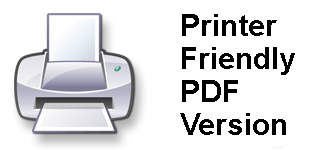The risks of adverse effects are extremely low
An association has been found to exist between non-steroidal anti-inflammatory dugs (NSAIDs) and raised blood pressure that can occasionally result in heart attack or stroke. However this risk is extremely low and it affects only a very small number of patients who are generally taking prolonged courses of NSAIDs. The additional cardiovascular risk of developing a “thrombo-embolism” (a blood clot that develops and breaks free to flow with the blood around the circulation) is also present. A thrombo-embolism can block fine blood vessels supplying the brain causing a stroke or may block fine blood vessels in the kidney leading to damage to areas of the kidney.
The risk varies between various NSAID medications and is higher with increased dose and prolonged use of NSAID medication.
NSAIDS are effective and useful drugs!
NSAIDs are very useful for the treatment of inflammatory conditions including dental pain, arthritis, gout and for the reduction of a fever in children and adults. Like many medicines, greater anti-inflammatory effectiveness of particular NSAIDs is unfortunately associated with a greater risk of unwanted side effects.
Adverse effects of NSAIDs include:
- irritation to the gastric lining
- stomach cramps
- gastric bleeding
- ulceration
- raised blood pressure
- kidney damage
- liver damage
- thrombo-embolism
- heart attack
- stroke
However, it must be pointed out that the vast majority of patients are not troubled by adverse reactions when taking a relatively short course of NSAID medication, as is the case around the time of dental surgery.
Of the common NSAIDs used by dentists, Voltarin (also known as Diclofenac) carries the highest risk of cardio-vascular side effects such as thrombo-embolism particularly with doses above 150mg per day.
High dose Ibuprofen over 2,400mg per day is also associated with a significantly raised risk of stroke and heart attack. However, the usual dose prescribed by a dentist (Nurofen 2 tabs each containing 200mg Ibuprofen 8 hourly) would be considered a low dose and carries little or no risk.
The NSAID that appears to carry the least risk is Naproxen, as used by Dr Priestland. He normally prescribed 500mg three times a day. It is very effective for the treatment of dental pain and post-operative pain and swelling.
Contact the friendly team at NQ Surgical Dentistry today on (07) 4725 1656 or call in to see us at 183 Kings Rd, Pimlico QLD 4812
